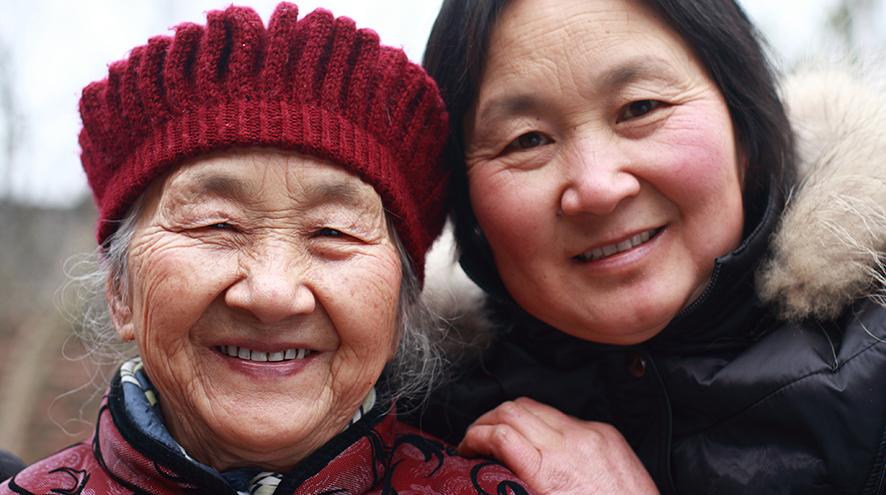Statement of Relationship and Land Acknowledgement
We are grateful for the Traditional Knowledge Keepers and Elders who are still with us today and those who have gone before us. We make this acknowledgement as an act of reconciliation and gratitude to those whose territory we reside on or are visiting.

Purpose
The intent of this statement is to recognize and affirm the Alzheimer Society Alberta & Northwest Territories (the Society) responsibility to support First Nations, Métis, and Inuit individuals living with dementia and the kin relationships that support them with a welcoming, inclusive, ‘safer’[1], and supportive environment that is respectful of and responsive to their respective life experiences. The Society recognizes the importance of creating supportive and caring environments where First Nations, Métis and Inuit partners thrive and is committed to seek opportunities to continuously learn how to work collaboratively with family members, Elders, Knowledge Keepers, and community leaders, as appropriate. The Society values building and nurturing these relationships, recognizing that it is equally as significant to acknowledge the Indigenous relationship to the land, as the kin relationships that support individuals living with dementia.
[1] The Society recognizes that no environment can be guaranteed to be entirely ‘safe’, as there are always factors that cannot be accounted for. Instead, the Society seeks to provide ‘safer’ spaces that promote individuals from a variety of backgrounds to express what ‘safety’ means for them and for the Society to respond accordingly.
Truth and Reconciliation Statement of Action
The Society commits to the ongoing process of truth and reconciliation and acknowledges the harmful impacts of colonization which has embedded systemic racism within all aspects of Canadian society, creating a legacy of intergenerational trauma and continuing harm for First Nations, Métis, and Inuit people, families, and communities.
We are working towards truth and reconciliation through:
- promoting a greater understanding of the history and current reality of Indigenous Peoples in Canada by supporting professional learning and capacity building of the Society staff to demonstrate greater compassion and empathy for the perspectives and experiences of First Nations, Métis, and Inuit people including but not limited to: treaties, legislation and agreements with First Nations, Métis and Inuit, the legacy of colonization including, but not limited to Indian residential schools, day schools, hospitals, the Sixties Scoop and the ongoing impacts of systemic, organizational and individual racism in the child welfare, health care, social service and correctional systems;
- supporting clients, volunteers, and staff to build and apply knowledge and understanding about First Nations, Métis, and Inuit perspectives, contributions, cultural beliefs, traditions, languages, and values to inform a strengths-based approach that recognizes and draws upon the resiliency and valuable knowledges and unique worldviews of Indigenous Peoples;
- using culturally responsive resources developed in partnership with Indigenous individuals, organizations and communities that reflect and demonstrate the strength and diversity of First Nations, Métis, and Inuit cultures and communities;
- promoting a greater understanding of the impacts of intergenerational trauma by supporting professional learning and capacity building for Society staff and volunteers to practice a trauma-informed approach to care;
- practicing culturally responsive protocols developed in partnership with Indigenous individuals, organizations and communities to develop mutually respectful relationships; and,
- supporting opportunities for clients to participate in language and cultural learning experiences related to First Nations, Métis, and Inuit cultures and communities.
Land Acknowledgement
We acknowledge that what we call Alberta and NWT is the traditional and ancestral territory of many peoples, presently subject to Treaties 6, 7, 8, 10 and 11. Namely: the Blackfoot Confederacy – Kainai, Piikani, and Siksika – the Cree, Dene, Saulteaux, Nakota Sioux, Stoney Nakoda, and the Tsuu T’ina Nation, Heart Lake Nation and the Métis People of Alberta and the Dehcho, Tłı̨chǫ, Sahtu and Gwich'in peoples of present day NWT. This includes the Métis Settlements and the Six Regions of the Métis Nation of Alberta within the historical Northwest Metis Homeland. We acknowledge the many First Nations, Métis and Inuit who have lived in and cared for these lands for generations. We are grateful for the traditional Knowledge Keepers and Elders who are still with us today and those who have gone before us. We make this acknowledgement as an act of reconciliation and gratitude to those whose territory we reside on or are visiting.
Pronunciation
Kainai is pronounced “Kigh-nigh”
Piikani is prouncounced “Pe-kan-ee”
Siksika is pronounced “Sik-sik-ah”
Dene is pronounced “Den-nay”
Sauteaux is pronounced “So-toh”
Nakota Sioux is pronounced “Na-ko-ta Soo”
Tsuu T’ina is pronounced “Soo-teena”
